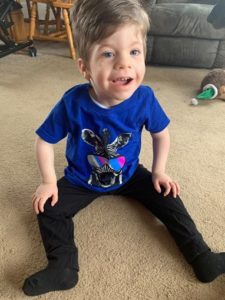
Hunter’s Story, as told by his mom, Nicolette:
“I am mom to Hunter who is almost 2 years old. We have made it through many ups and many downs over the last almost 2 years.
When Hunter was born he spent 43 days in 2 different NICUs. He was born at a hospital that thankfully had a NICU, but at about 3.5 weeks old they just couldn’t provide the rest of the care he needed so we transferred to a children’s hospital. We needed answers.
At about a month old we received his diagnosis. Looking back to that very day I thought it was the worse day of my life but it wasn’t. I was able to get the answers and the help Hunter required. He went home on 24/7 oxygen because he had sleep apnea and he was sleeping 23 hours of the day. He went on to have a really rough first year. Many many appointments, therapy visits, ER visits, and many hospital stays. I never thought it would end.
He had an NG tube for 10 months and at that point we decided to make the switch to a gtube. When it comes to the feeding tube its hard to think about having to tube feed your child. I try to look at the glass half full. This tube has provided the nutrients to help my son grow to stay alive, it has let him learn how to get stronger before having to worry about using his energy to eat, we have been able to still feed him and hydrate him when very sick, and lastly it has let him learn at his own pace.
None of our kids are the same or alike. They all go on their own time. Hunter is still currently tube fed but he just started eating baby food at least twice a day without feeling pressure to get it all in. Luckily, Hunter started growth hormones while still in the NICU at a month old, so that was one less fight we had to put up, which isn’t the case for a lot of families.
Through all of the hard times we have been through, all the learning we have had to do, the sleepless hospital nights, and all of the therapy visits, I wouldn’t trade it for the world.
If Hunter wasn’t born with Prader-Willi Syndrome, he wouldn’t be Hunter. Which would be a shame because I have never met a happier person than him. He constantly has a smile on his face, always! I believe our kids can do anything they put their mind to. Prader-Willi Syndrome will not hold my child back and it shouldn’t hold yours back either!!! Together we can all get through this. One day at a time.”

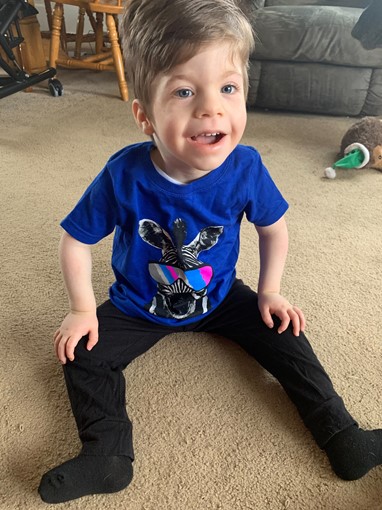
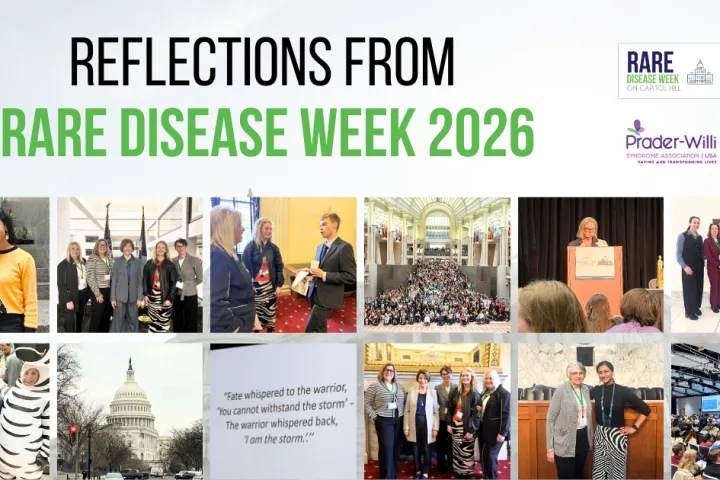
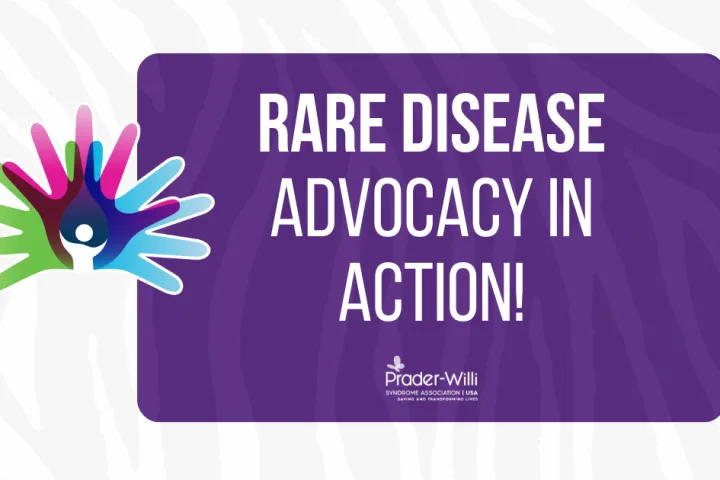
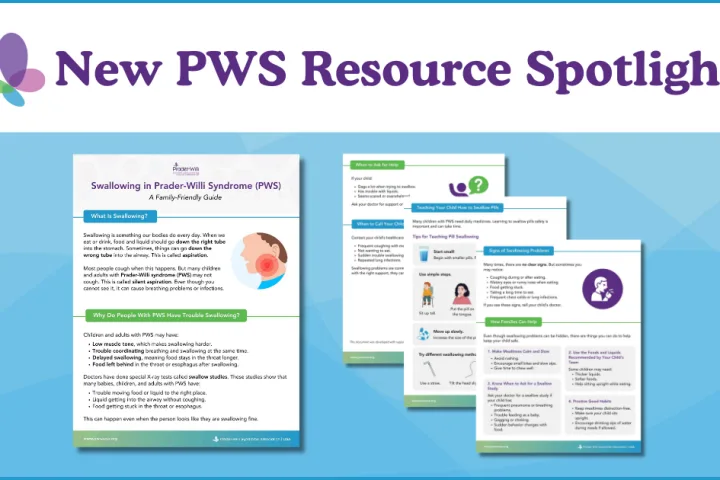
 Perry A. Zirkel has written more than 1,500 publications on various aspects of school law, with an emphasis on legal issues in special education. He writes a regular column for NAESP’s Principal magazine and NASP’s Communiqué newsletter, and he did so previously for Phi Delta Kappan and Teaching Exceptional Children.
Perry A. Zirkel has written more than 1,500 publications on various aspects of school law, with an emphasis on legal issues in special education. He writes a regular column for NAESP’s Principal magazine and NASP’s Communiqué newsletter, and he did so previously for Phi Delta Kappan and Teaching Exceptional Children. Jennifer Bolander has been serving as a Special Education Specialist for PWSA (USA) since October of 2015. She is a graduate of John Carroll University and lives in Ohio with her husband Brad and daughters Kate (17), and Sophia (13) who was born with PWS.
Jennifer Bolander has been serving as a Special Education Specialist for PWSA (USA) since October of 2015. She is a graduate of John Carroll University and lives in Ohio with her husband Brad and daughters Kate (17), and Sophia (13) who was born with PWS. Dr. Amy McTighe is the PWS Program Manager and Inpatient Teacher at the Center for Prader-Willi Syndrome at the Children’s Institute of Pittsburgh. She graduated from Duquesne University receiving her Bachelor’s and Master’s degree in Education with a focus on elementary education, special education, and language arts.
Dr. Amy McTighe is the PWS Program Manager and Inpatient Teacher at the Center for Prader-Willi Syndrome at the Children’s Institute of Pittsburgh. She graduated from Duquesne University receiving her Bachelor’s and Master’s degree in Education with a focus on elementary education, special education, and language arts. Evan has worked with the Prader-Willi Syndrome Association (USA) since 2007 primarily as a Crisis Intervention and Family Support Counselor. Evans works with parents and schools to foster strong collaborative relationships and appropriate educational environments for students with PWS.
Evan has worked with the Prader-Willi Syndrome Association (USA) since 2007 primarily as a Crisis Intervention and Family Support Counselor. Evans works with parents and schools to foster strong collaborative relationships and appropriate educational environments for students with PWS. Staci Zimmerman works for Prader-Willi Syndrome Association of Colorado as an Individualized Education Program (IEP) consultant. Staci collaborates with the PWS multi-disciplinary clinic at the Children’s Hospital in Denver supporting families and school districts around the United States with their child’s Individual Educational Plan.
Staci Zimmerman works for Prader-Willi Syndrome Association of Colorado as an Individualized Education Program (IEP) consultant. Staci collaborates with the PWS multi-disciplinary clinic at the Children’s Hospital in Denver supporting families and school districts around the United States with their child’s Individual Educational Plan. Founded in 2001, SDLC is a non-profit legal services organization dedicated to protecting and advancing the legal rights of people with disabilities throughout the South. It partners with the Southern Poverty Law Center, Protection and Advocacy (P&A) programs, Legal Services Corporations (LSC) and disability organizations on major, systemic disability rights issues involving the Individuals with Disabilities Education Act (IDEA), Americans with Disabilities Act (ADA), and the federal Medicaid Act. Recently in November 2014, Jim retired.
Founded in 2001, SDLC is a non-profit legal services organization dedicated to protecting and advancing the legal rights of people with disabilities throughout the South. It partners with the Southern Poverty Law Center, Protection and Advocacy (P&A) programs, Legal Services Corporations (LSC) and disability organizations on major, systemic disability rights issues involving the Individuals with Disabilities Education Act (IDEA), Americans with Disabilities Act (ADA), and the federal Medicaid Act. Recently in November 2014, Jim retired.